By Ludwig Heinrich Dyck
Gnaeus Pompey was one of the pivotal Roman leaders during the last decades of the Republic. He was born into an old and wealthy provincial family from Picenum on September 29, 106 BC. Good looking and well-spoken, Pompey grew up to be a gifted diplomat with ample military skills. He would need them, for his was an age of anarchy and civil wars.
As a teenager Pompey served on the staff his father, Pompeius Strabo, during the Social War (91-88 BC). Rome achieved victory over her rebellious Italian allies, but social inequalities and corruption continued to undermine the Roman Republic. In 88 BC, civil war erupted between leading generals Gaius Marius and Lucius Cornelius Sulla. Strabo sided with Sulla, who drove Marius out of Rome. The following year Sulla left for Greece to stop Mithridates VI of Pontus from taking over that region. Marius returned to Rome and slaughtered Sulla’s supporters. Although Pompey’s vigilance saved his father from assassination, Strabo succumbed to dysentery.
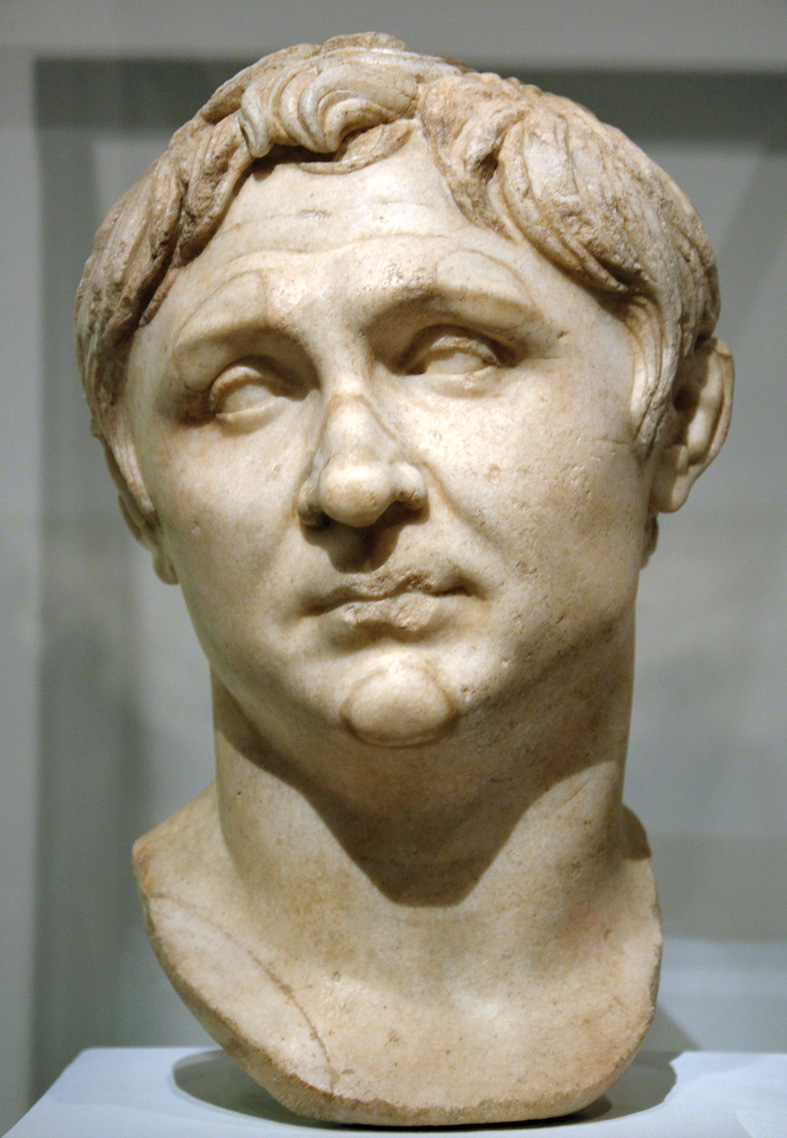
Pompey avoided persecution by the Marians by staying at his country estates. In 86 BC Pompey disproved charges of embezzlement against himself and his late father. The judge was so impressed by Pompey that he offered his daughter Antistia in marriage. The same year Marius passed away at the age of 70, but the war was continued by his followers. Upon Sulla’s return to Italy in 83 BC, Pompey declared for Sulla.
Enrolling three new legions, Pompey defeated the Marian forces sent against him. During one cavalry engagement, Pompey slew a Celtic champion fighting for the Marians. After driving the Marians from Italy in 82, Sulla persuaded Pompey to marry Sulla’s step-daughter Aemilia; as a result, Antistia was forced to divorce Pompey. At the time of her marriage to Pompey, Aemilia was pregnant by her husband, Manius Acilius Glabrio. She was reluctant to marry Pompey, but bowed to Sulla’s pressure and shortly afterwards died in childbirth. During that same year, Pompey cleared Sicily of the Marian enemy. Pompey kept his soldiers from committing atrocities by ordering swords sealed in scabbards.
Pompey set sail in 81 BC with six legions and 120 galleys to retake Africa from the Marians. Upon landing at Utica, 7,000 of the enemy deserted to Pompey’s side. Crossing a flooded river amidst a deluge of rain, Pompey caught Domitius Ahenobarbus and his ally, Numidian King Iarbas, unawares and defeated them in a chaotic battle. Pompey restored Hiempsal II, who had been ousted by Iarbas, to the Numidian throne.
After hunting lions and elephants, Pompey returned to Utica, where he found letters from Sulla. Ordered to await his replacement, Pompey was inwardly grieved but went out of his way to prevent a mutiny among his troops. Reluctant to serve under anyone else, his troops hailed Pompey as Magnus (the Great). Pompey was received with much fanfare when he returned to Rome.
At first refused a triumph by Sulla on account on his young age, Pompey eventually got his way by threatening to not disband his troops. Sometime around 79 BC, Pompey married his third wife Mucia Tertia. The next year Sulla passed away in his country villa.
One more powerful Marian remained at large in Hispania: the hard-bitten veteran Quintus Sertorius, who had roused the Lusitanians into revolt. In 77 BC, Pompey arrived in Hispania to bring Sertorius to heel, but instead he was twice defeated. During a battle near the Surco River, Pompey, who was mounted, was beset by a powerful footman. Pompey received a slight hand wound, but his own blade sheared off the hand of his opponent. Sertorius ended up being murdered by jealous subordinates in 72 BC. Perpenna, who was the ringleader, assumed command, but Pompey easily dispatched him. Pompey pardoned the rebel officers and destroyed Sertorius’ correspondence to prevent prosecutions.
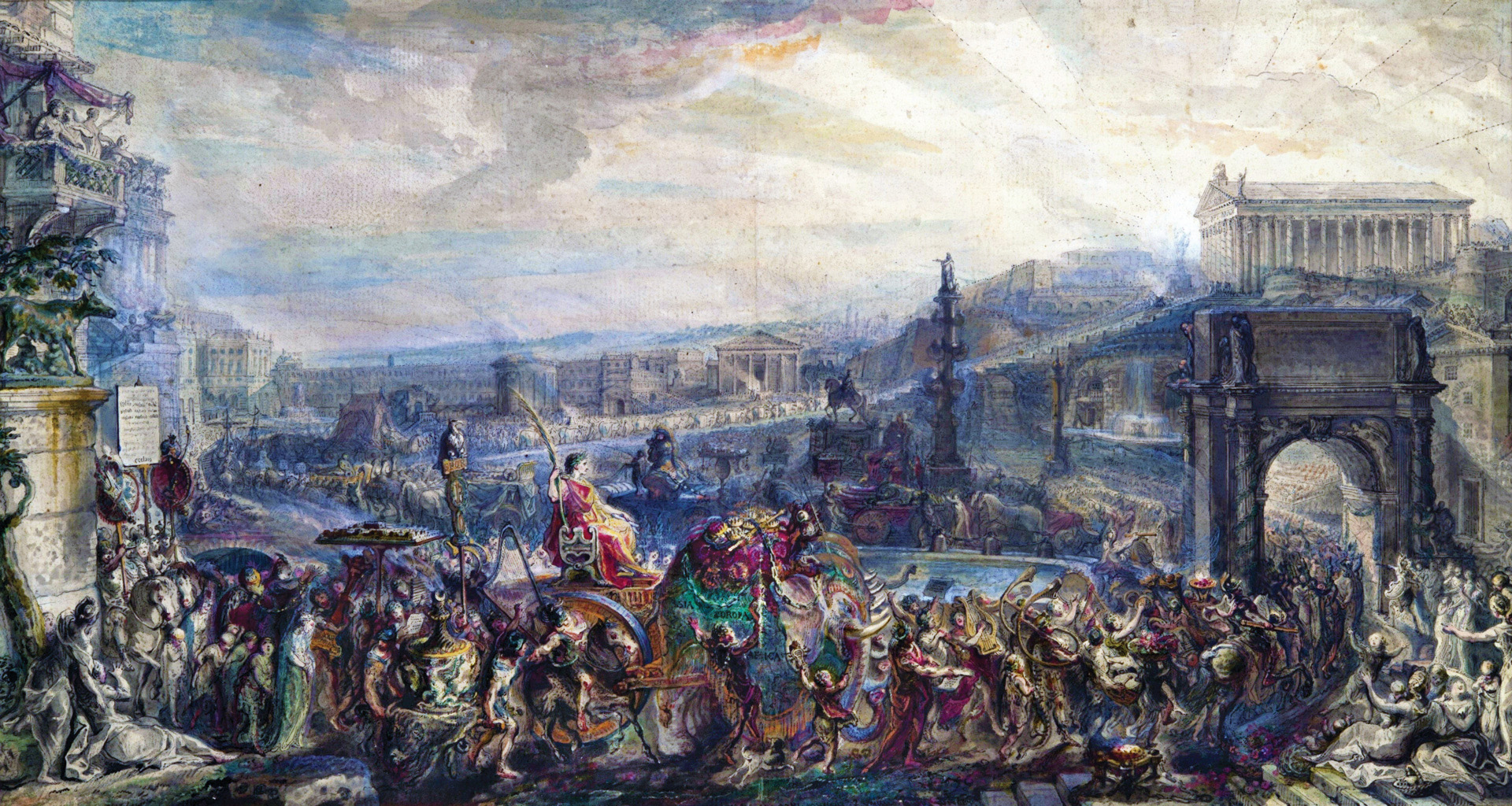 Pompey returned to Italy in 71 BC to assist in the mop-up operations of Marcus Licinius Crassus, who had crushed Spartacus’ slave revolt. Pompey unfairly claimed much of the credit for the victory. As a result, a rift developed between Pompey and the Roman Senate, which envied his popularity and was angry with him for blaming his failures in Spain on them.
Pompey returned to Italy in 71 BC to assist in the mop-up operations of Marcus Licinius Crassus, who had crushed Spartacus’ slave revolt. Pompey unfairly claimed much of the credit for the victory. As a result, a rift developed between Pompey and the Roman Senate, which envied his popularity and was angry with him for blaming his failures in Spain on them.
Instead of opposing Pompey, Crassus joined forces to bully the Senate into appointing the two as consuls for 70 BC. Pompey then lifted the restrictions that Sulla had placed upon the tribunate, which was the people’s representatives in the government. He looked to them, and not the aristocratic Senate, for further military commands.
Pompey obtained sweeping powers in 67 BC to eradicate the pirate menace. Based on Cilicia’s coast, the pirates had received Mithridates’ support. Their ranks swelled with the addition of war refugees. They had 1,000 ships, and had seized 400 cities along the coasts and islands of the Mediterranean.
No merchant ship was safe. The pirates raided towns and villages, took captives for ransom, and posed a threat to the transport of Rome’s grain supplies from Africa. Pompey established 13 strategic bases with more than 270 warships and upwards of 120,000 infantry. They scooped up the pirate fleets like shoals of fish. By showing mercy to captives, Pompey caused many to surrender voluntarily. Defeated at sea, the last pirates made their final stands in their mountain strongholds.
While still in Cilicia in 66 BC, Pompey received a new commission to deal with Rome’s troubles in the Middle-East. Fortunately for Pompey, Mithridates and King Tigranes II of Armenia had already been weakened in warfare with the preceding Roman commander. In addition, Tigranes was busy fending off a Parthian invasion.
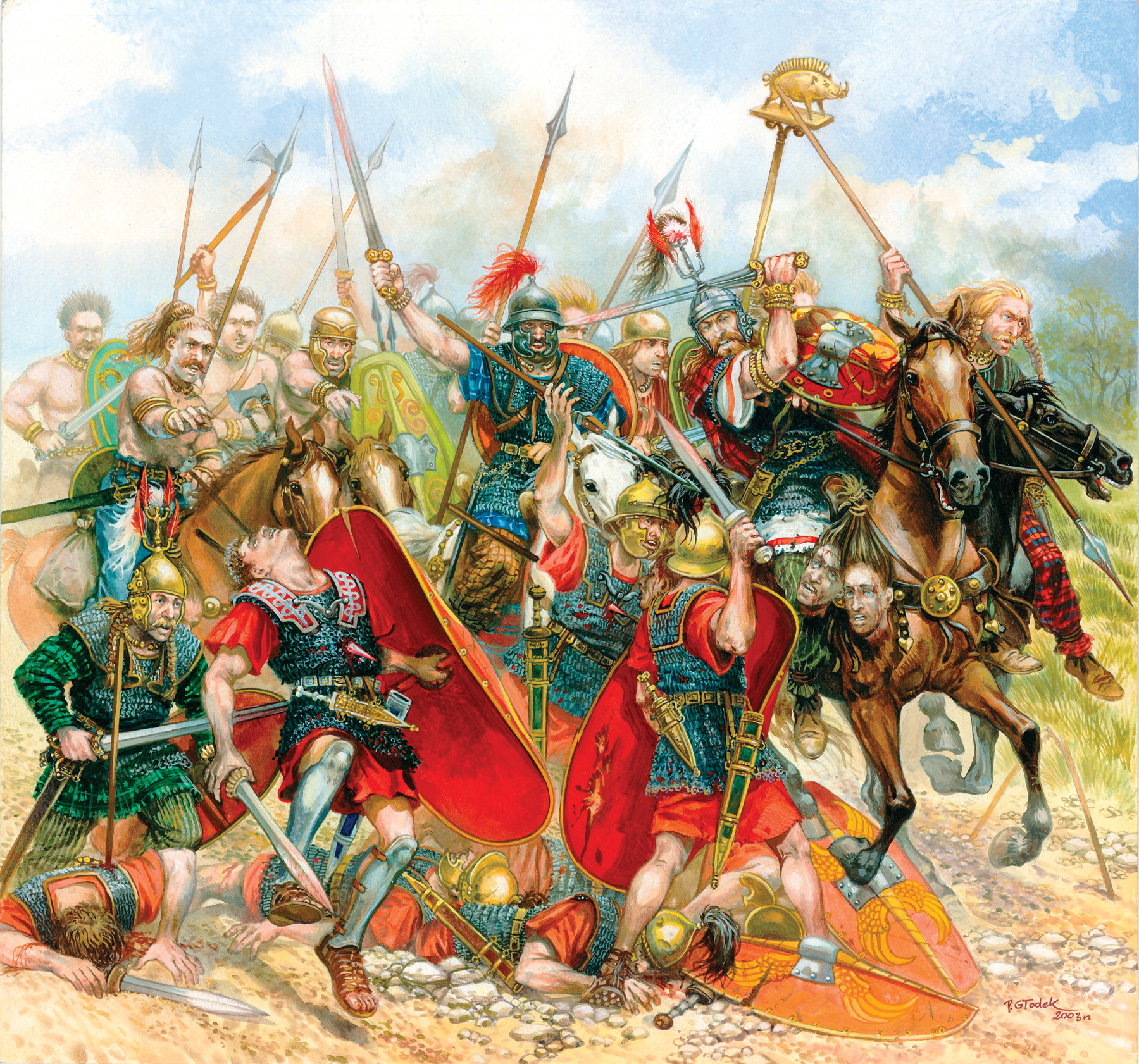
Free to concentrate on Mithridates, Pompey countered the king’s guerrilla tactics with a chain of fortifications in the Lycus valley. Decisively defeated at Nicopolis, Mithridates fled to the Crimea. After receiving the submission of the battle-weary Tigranes, Pompey ended the campaign season by invading the tribal lands of the southern Caucasus. Through the winter and into 65 BC, Pompey fought off hostiles and beat down insurrections. During a battle near the River Abas, Pompey ran his spear through Cosis, the brother of the Caucasian Albanian king.
Over the course of the next three years, Pompey reaffirmed the treaty between Parthia and Rome, settled disputes between Parthia and Armenia, and turned Syria into a province. He also received the submission of the Nabataens of northern Arabia and captured Jerusalem while resolving a dynastic dispute.
When Pompey returned to Rome, he left behind a belt of Roman provinces along the eastern Mediterranean guarded on their inland sides by client kings. Altogether, Pompey conquered 1,000 strongholds and 900 cities, founded 39 new towns, and increased the annual revenue of the republic from 50 million to 85 million denarii. Pompey’s triumph was one of unsurpassed extravagance.
But not all was well for Pompey. He divorced Mucia, who was charged with adultery. What is more, the Senate maintained its grudge. Pompey allied himself in 60 BC with the rising politician Julius Caesar, who brought in his old patron Crassus to form the First Triumvirate. Although each member was out for himself, they collectively stifled opposition in the Senate to their mutual benefits.
Pompey married Caesar’s daughter Julia, who was 30 years Pompey’s junior. Appointed as proconsul for five years to relieve a food shortage, Pompey personally braved stormy weather at sea to ensure that supplies reached Italy. In 55 BC Pompey shared the consulship with Crassus and thereafter gained proconsular command over Spain. Governing Spain through deputies, Pompey remained in Italy, where he built a new theatre and enjoyed life with Julia.
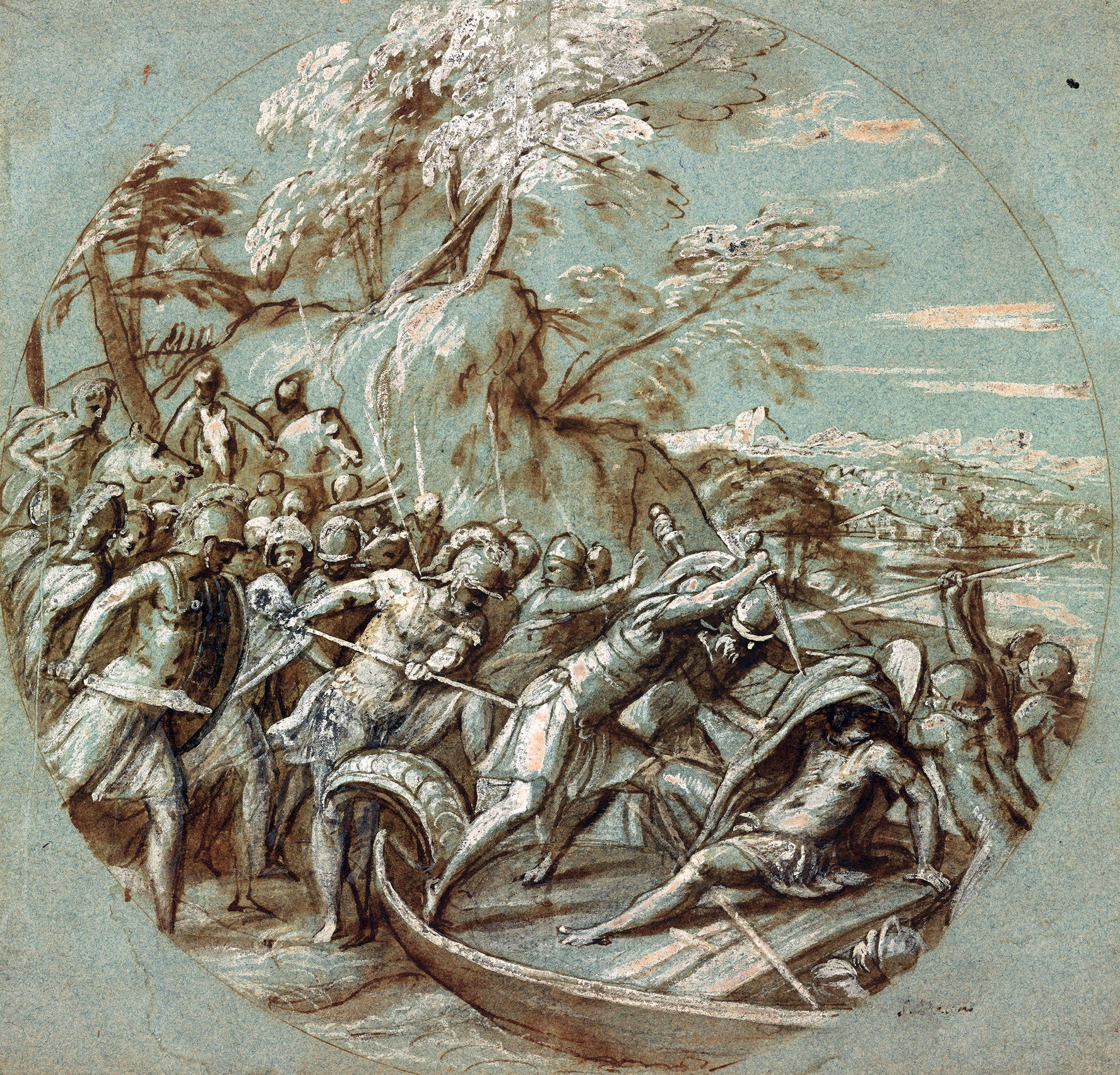
When Julia died in childbirth in 54 BC, Pompey lost his principal reason to favor Caesar. Subsequently, Crassus was killed in 53 BC during his disastrous invasion of Parthia. From that point on, the Senate curried Pompey’s favor. Appointed as sole consul for 52 BC, Pompey dealt with riots and with government corruption; that is, other than his own. Pompey then married for the fifth time. His wife Cornelia was the young widow of Publius Crassus, who had perished alongside his father at Carrhae.
In the meantime, Caesar had completed his conquest of Gaul, but refused to give up command. Doing so would put him at the mercy of his enemies in the Senate. When pressed about the danger of Caesar’s legions, Pompey boasted that he need merely stamp his foot and troops would arise. On January 10, 49 BC, Caesar crossed the Rubicon River, which was Italy’s northern frontier, with his legions. It was an act of high treason. Pompey had five legions, but he needed more to take on Caesar’s army. Intending to rally troops from Rome’s eastern provinces, Pompey fled to the port of Brundisium. Blocking all streets except the two that led to the seaside, Pompey skilfully fought off Caesar’s probing attacks while embarking his legions.
Establishing his headquarters at Thessalonica, Pompey assembled an army of 11 legions and numerous auxiliaries from client kings. Pompey took part in the training of inexperienced troops, inspiring them with his skill and vigour despite his nearly 60 years of age. Pompey intended to liberate Italy, but early in 48 BC Caesar slipped through Pompey’s naval cordon and crossed the Adriatic first. Wary of risking his untried troops in open battle, Pompey took up a defensive posture south of Dyrrhachium. Pompey’s control of the sea allowed him to provision his camp at Petra, while Caesar had to forage abroad. During a night attack on Caesar’s siege lines, Pompey made some promising gains but failed to follow up with an assault on Caesar’s camp.
Caesar disengaged and headed towards the grain-rich fields of Thessaly. Coming after him was Pompey, who used his superiority in cavalry to cut Caesar’s supply line. The senators in Pompey’s camp considered Caesar as good as defeated. They persuaded Pompey into a decisive battle at Pharsalus on August 9, 48 BC. Although Pompey held an advantage of 40,000 men versus Caesar’s 22,000, he noticed how nervous his troops were compared to Caesar’s steady ranks.
With his superior cavalry, Pompey sought to overwhelm the smaller cavalry detachment protecting Caesar’s right flank. However, Caesar had ordered his cavalry to fall back, revealing six legionary cohorts. Instructed to use their six-foot long pila javelins in pike fashion, the cohorts wreaked havoc among Pompey’s cavalry. When Caesar committed his remaining reserves for an all-out assault, the whole Pompeian line collapsed. Returning to his camp, Pompey sat down speechless in his tent before joining in the flight of his men.
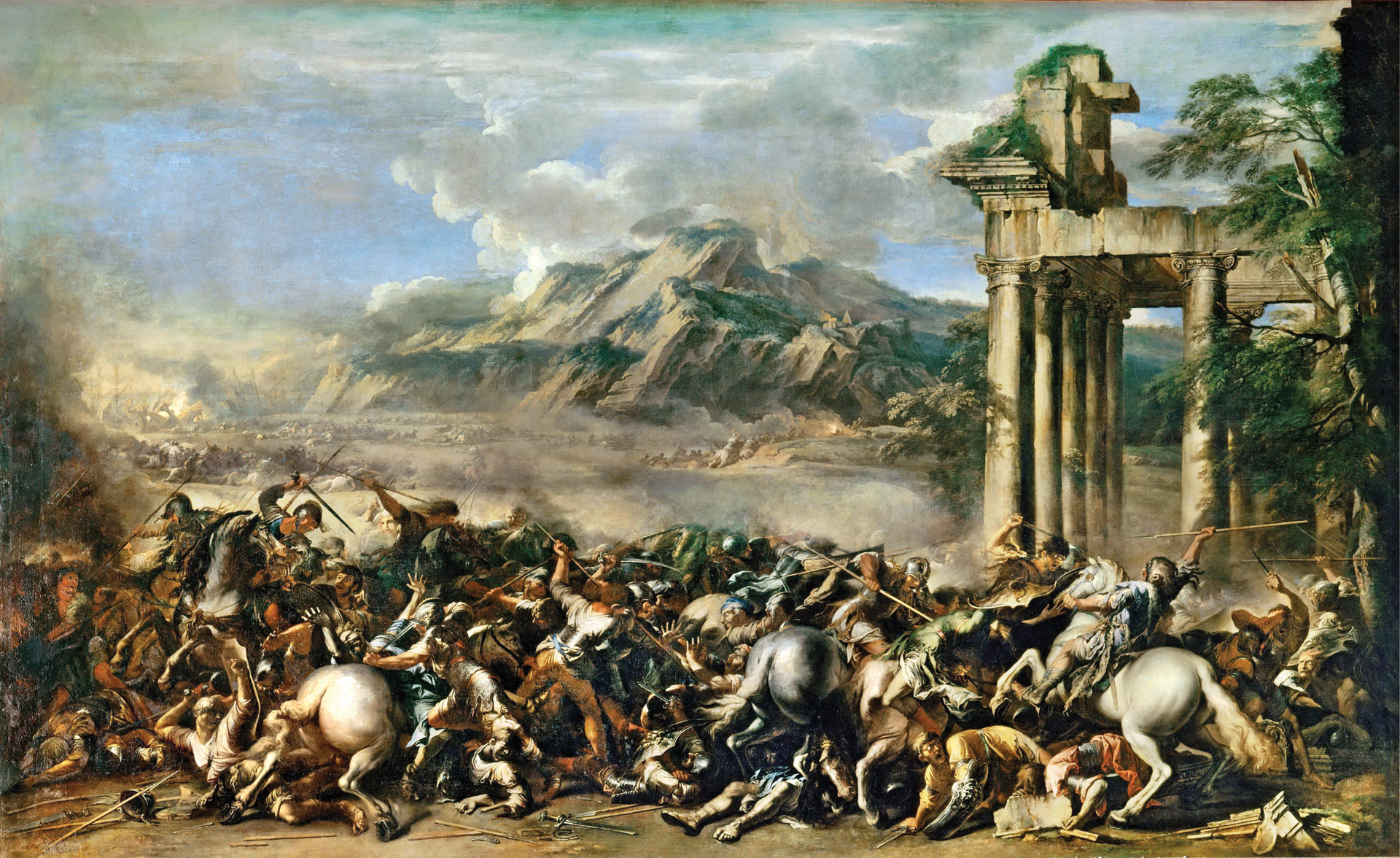
Avoiding attention, Pompey wandered to the coast. Given passage on a ship by a sympathetic captain, Pompey picked up Cornelia and his son Sextus on Lesbos. Pompey sailed on to Pamphylia, where at Attalia he met up with some senators with a few ships. They told him that he still retained his vast armada and that his army was re-gathering in Africa. Pompey, however, was worried about being caught by Caesar. He decided to seek the aid of the boy-king of Egypt, Ptolemy XII, whose late father had been a devoted ally.
On September 29, Pompey was on his galley at Pelusium, awaiting the decision of Ptolemy’s chief men. Rowed ashore on a small boat, Pompey and his party were met by a royal escort. While leaning over to help a freedman get out of the boat, Pompey was stabbed in the back. As two more assailants joined in the attack, Pompey drew his gown over his head and endured the wounds with only a groan. A cry was heard from the sea, where Cornelia had witnessed the scene from her galley.
Pompey’s head was sheared off and his corpse thrown overboard onto the beach. Later when all had left, the freedman washed the corpse, wrapped it in his own shirt, and made a funeral pyre from driftwood. Pompey’s ashes were brought to Cornelia and laid to rest at his country house near Alba.
Ptolemy’s advisors had murdered Pompey to appease Caesar, but when shown Pompey’s head, Caesar turned away in disgust. Caesar had born Pompey no personal enmity, nor wished him any harm, but more likely had hoped to win him over as a political tool.
Pompey’s part in the dying Republic was over. Although Pompey’s generalship had not been on par with the likes of Caesar, he proved capable enough against a host of lesser opponents. Pompey resolved foreign conflicts, strengthened Rome’s frontiers, and brought peace and stability to war-torn regions. Whatever his shortcomings, Pompey proved popular among the troops and the people and would forever be remembered as Magnus.
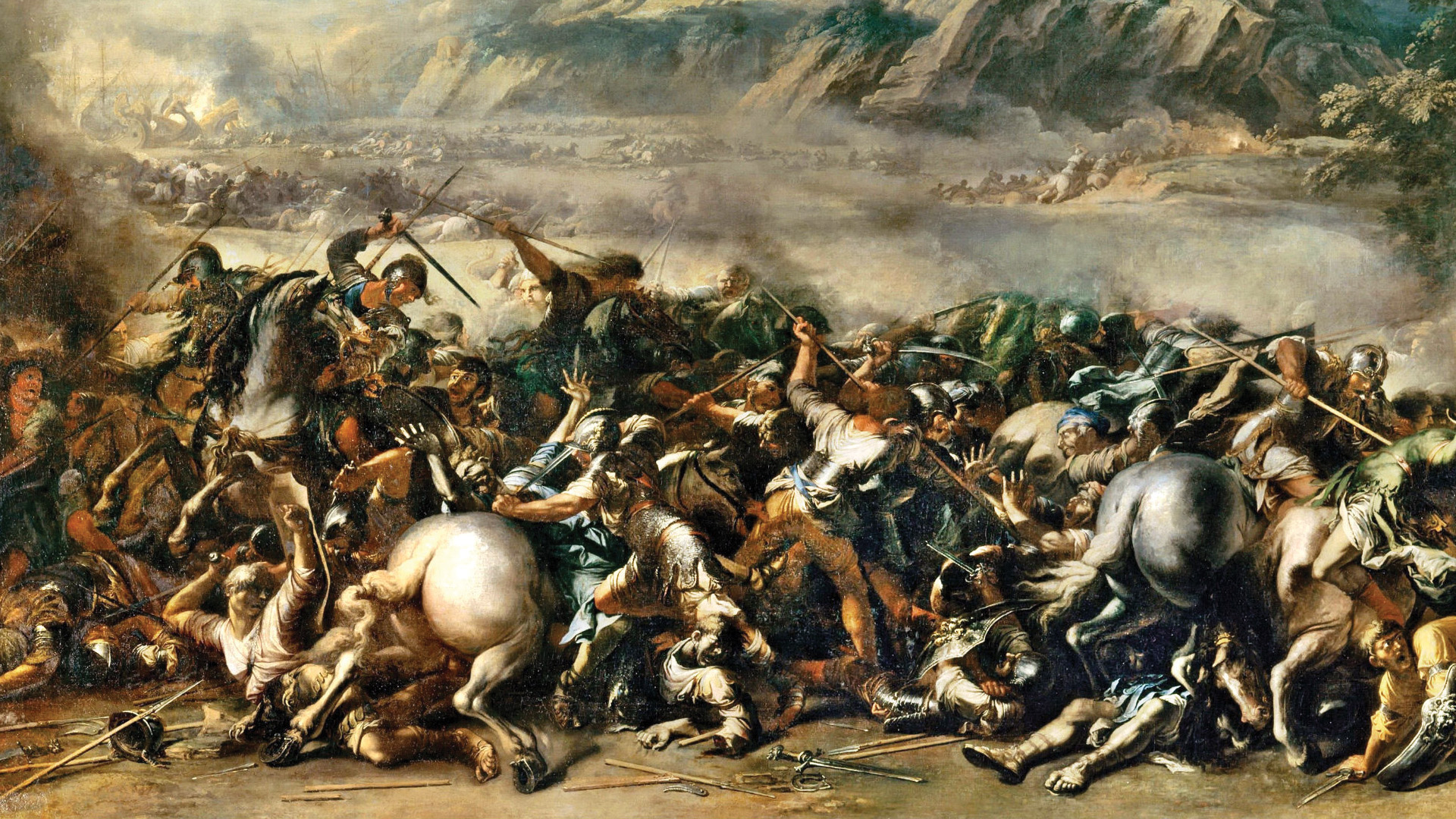

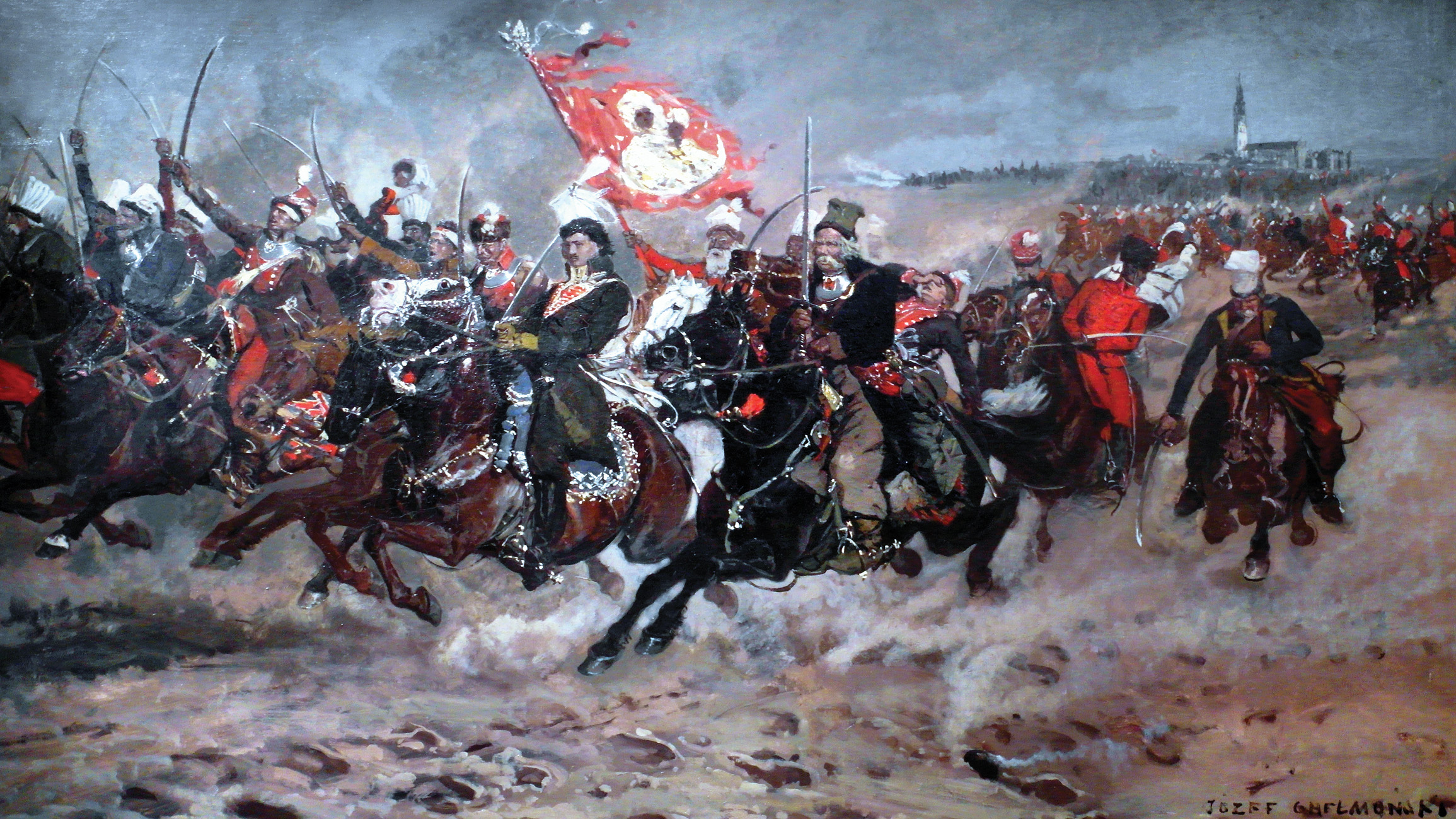
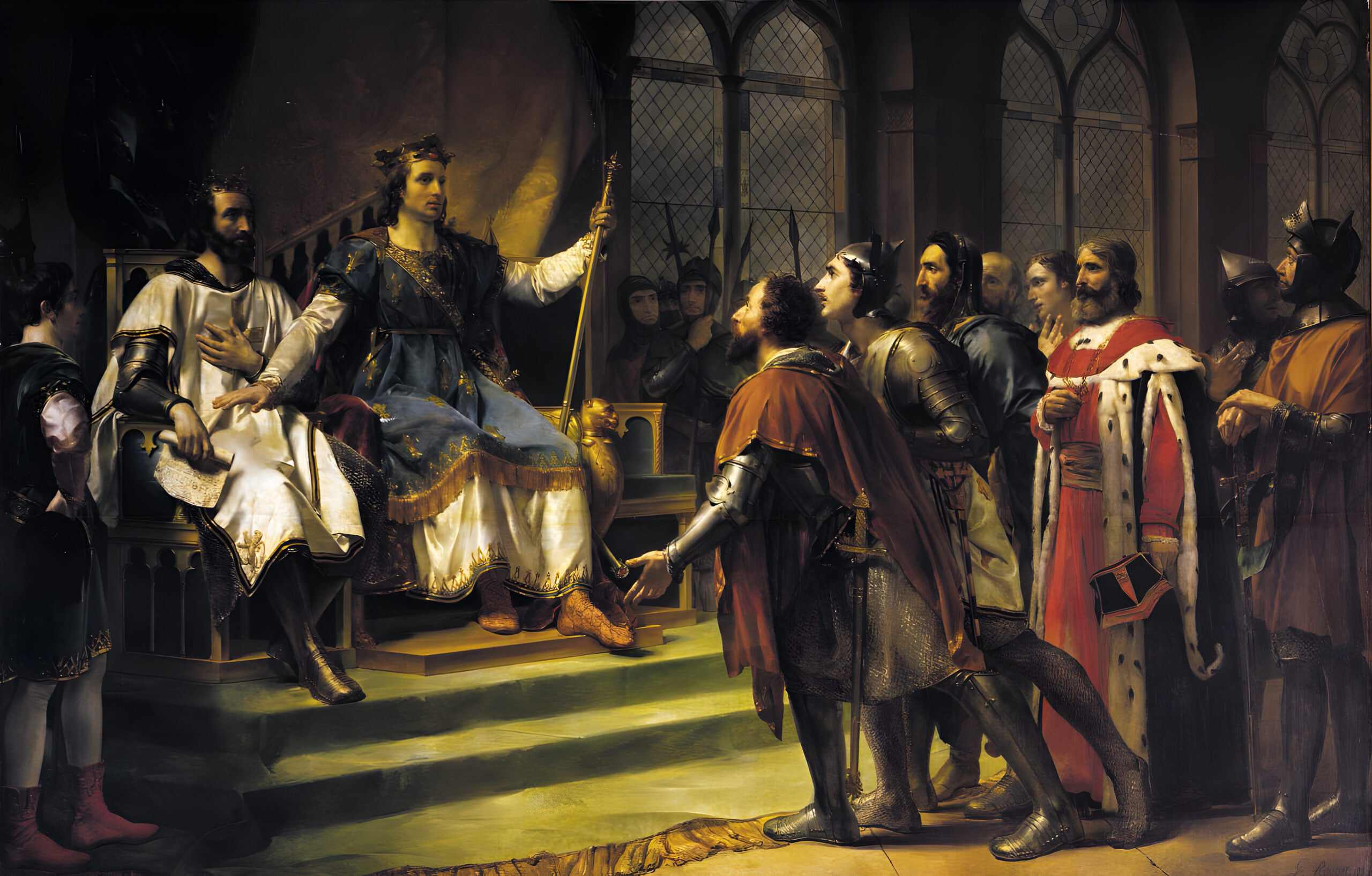
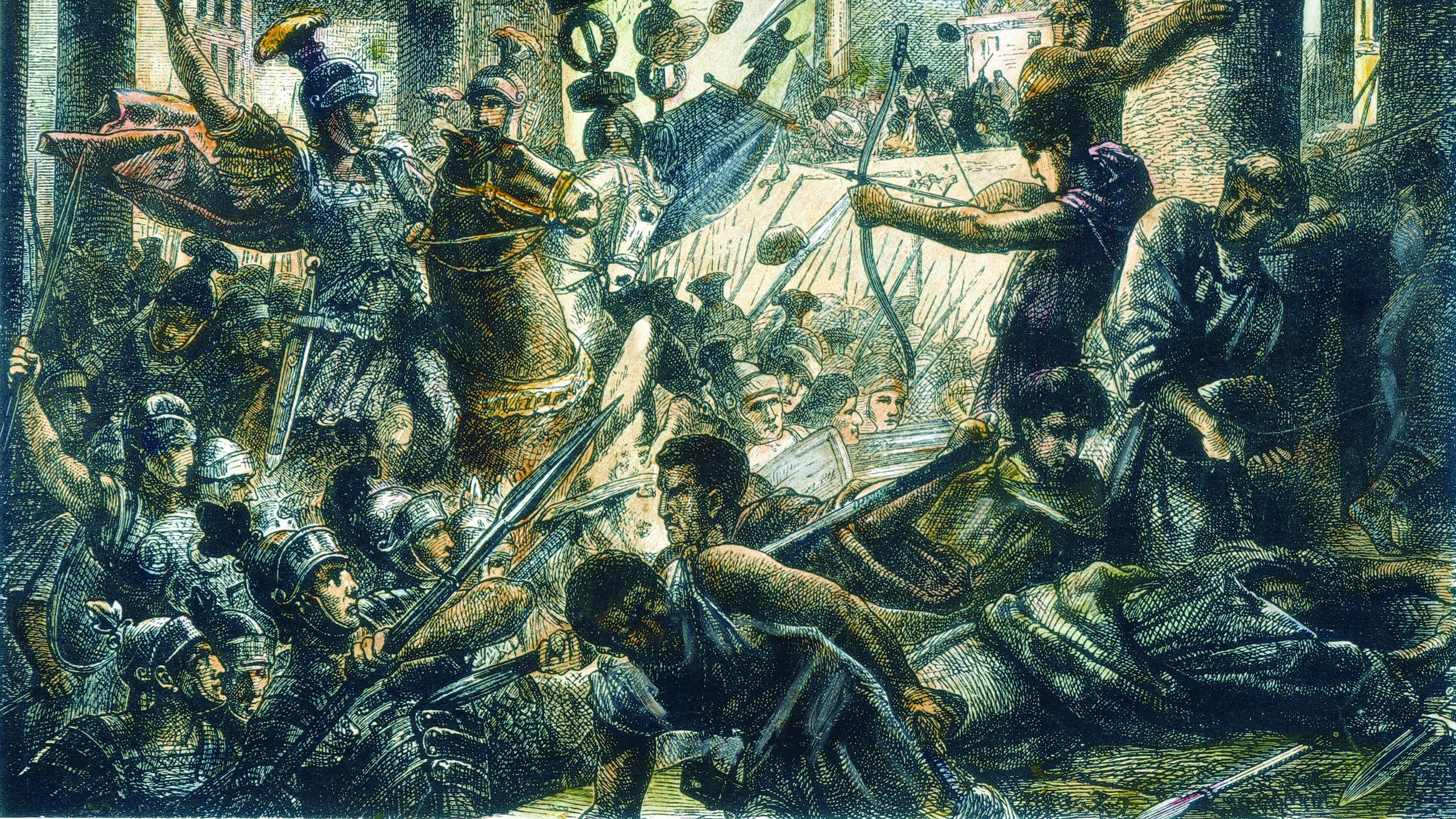
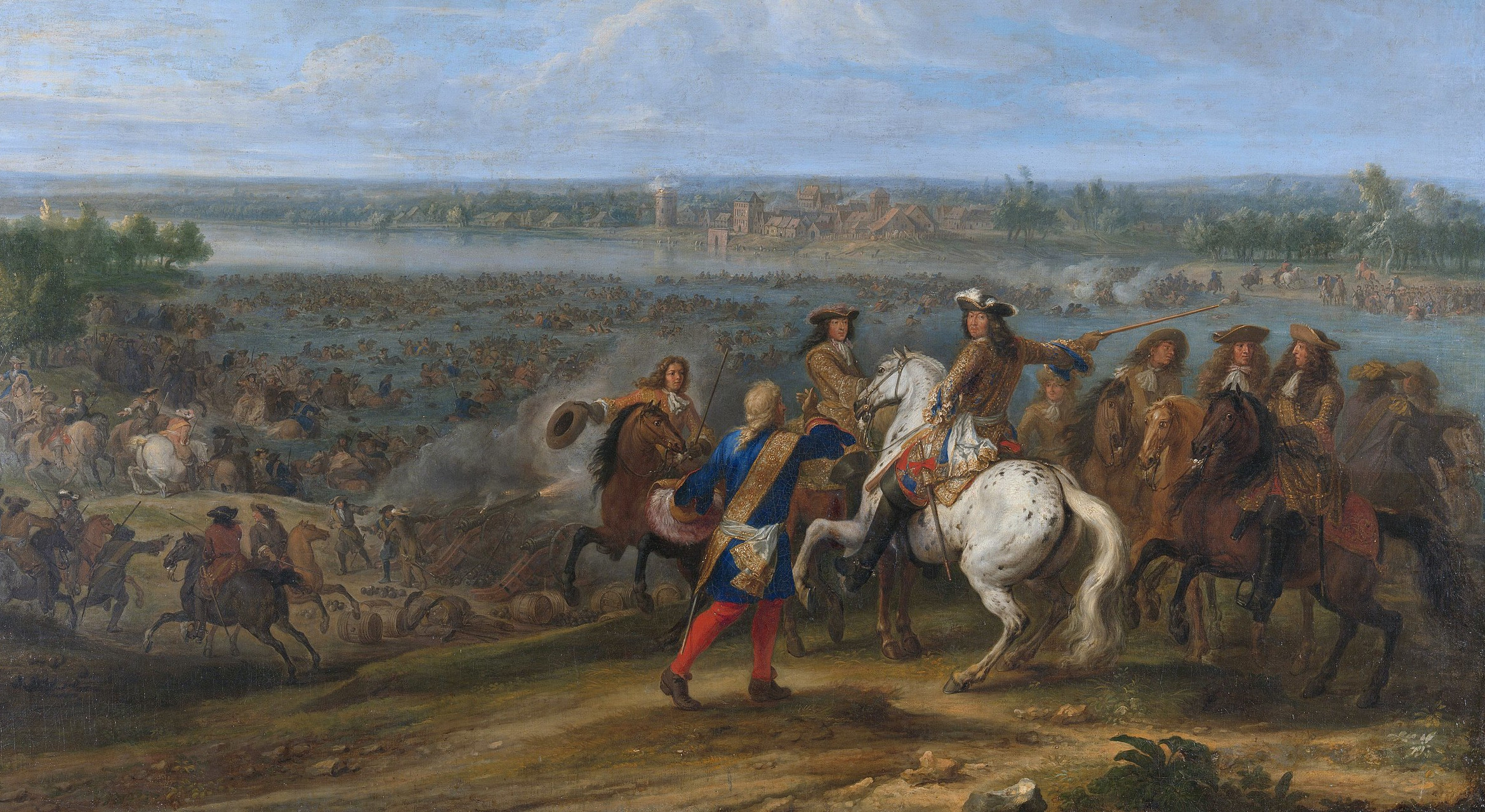

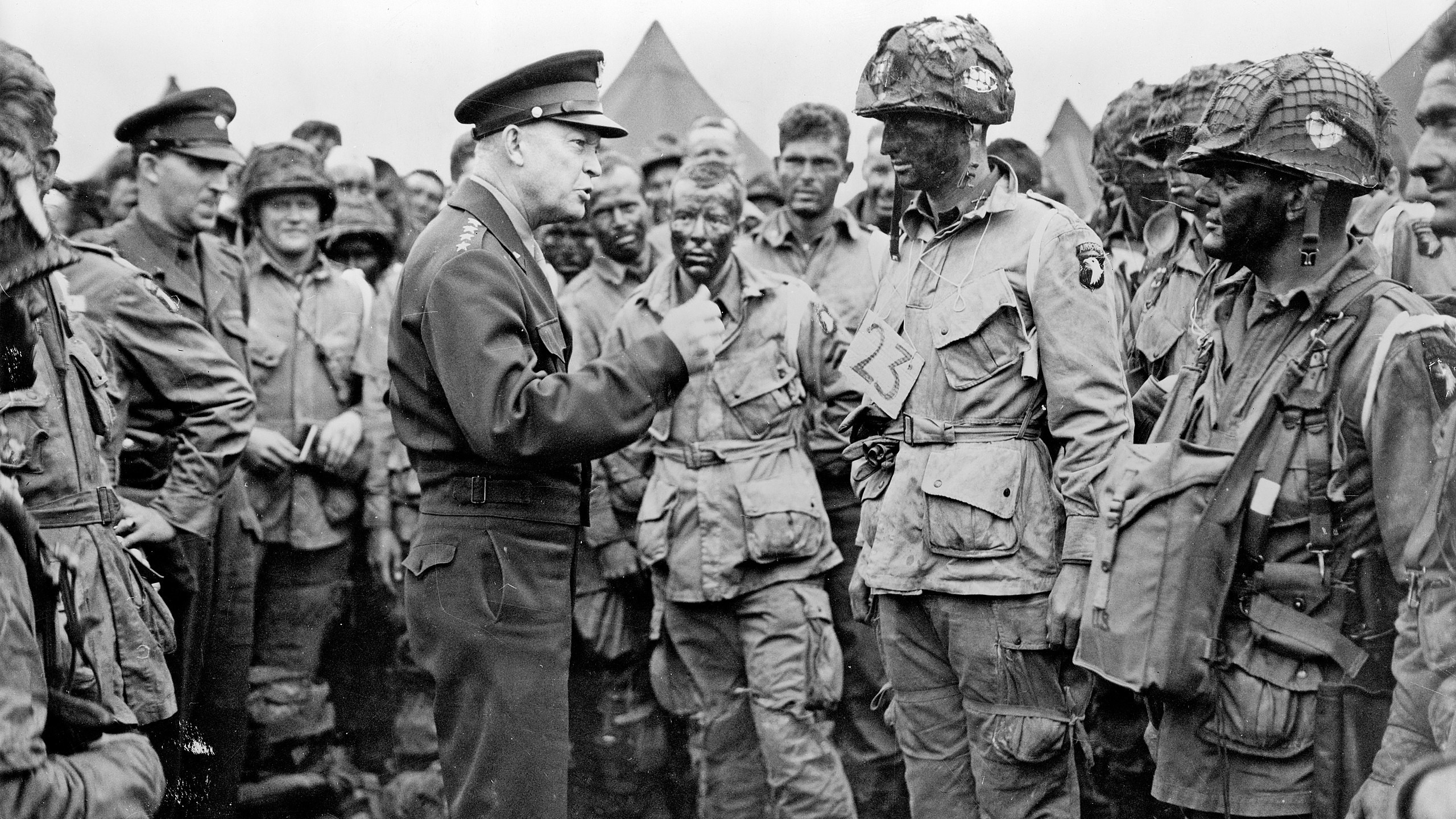
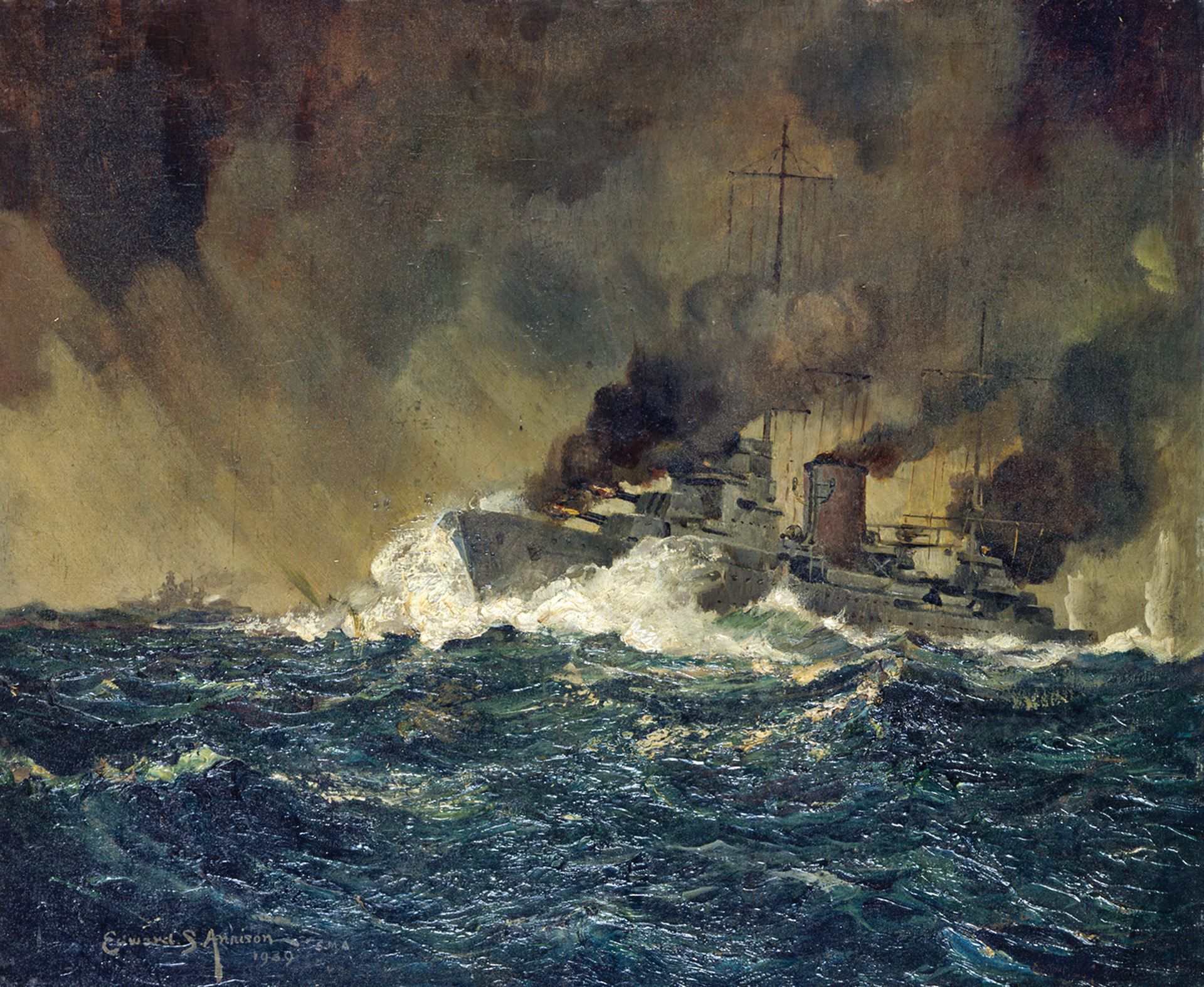
Join The Conversation
Comments
View All Comments